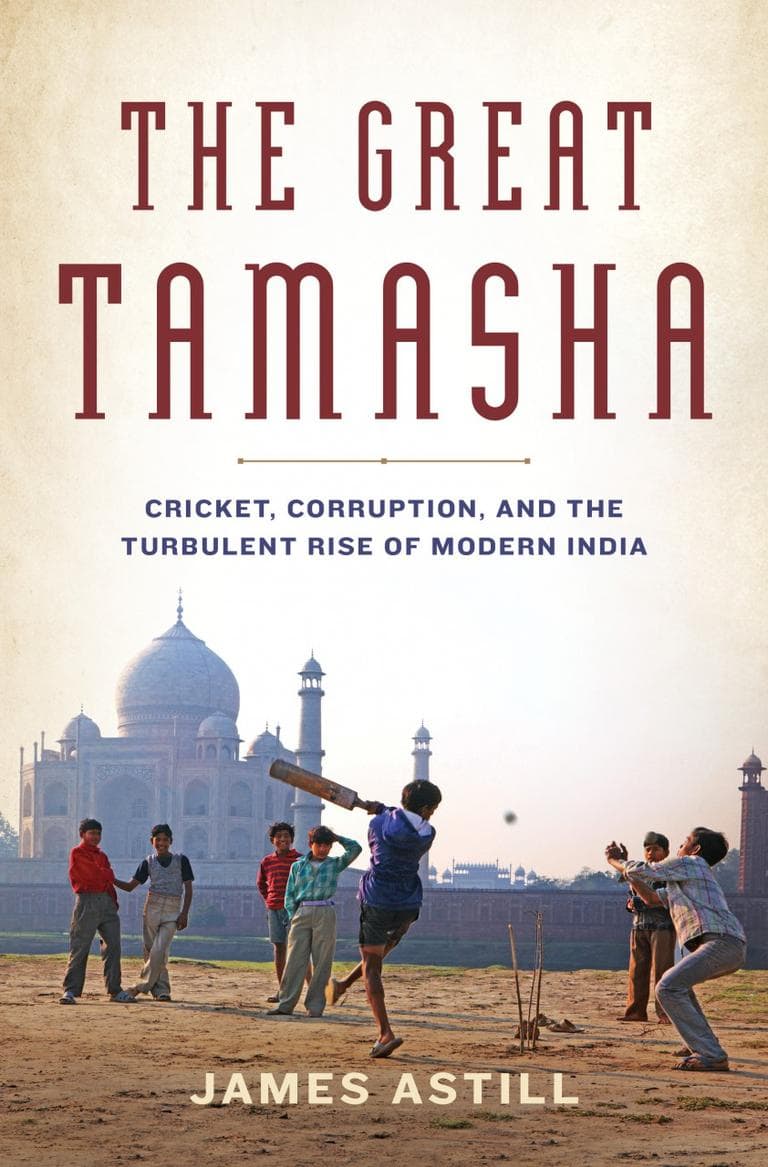Advertisement
Featured Book
'The Great Tamasha' Examines The Evolution of Cricket In India
ResumeThe Great Tamasha: Cricket, Corruption, and the Turbulent Rise of Modern India, James Astill's new book, tells, as the author puts it, the story of the conquest of India by cricket. He joined Bill Littlefield to discuss the spectacle that cricket has become in India since the late 19th century.
Highlights From Bill's Conversation with James Astill
BL:Cricket came to India with the British. How did it happen that the colonized became such fans of a game brought by the colonists?

JA: The British never meant to proselytize cricket in India. It was never part of a grand colonial design. But it was precisely because of the very elevated view that the Brits had of cricket. For them it was more than a game. It was an exhibition of great British virtues — of fair play, sportsmanship, of gentility. It was precisely because of that that various groups of elite Indians wanted to pick up the game — to emulate the British or impress them, perhaps.
BL: Tamasha, meaning entertainment, would seem to be an especially appropriate term to describe the phenomenon Lalit Modi created. The IPL games feature not only cheerleaders in hot pants, but Bollywood stars as team owners, as well as as celebrities in attendance. How important is the actual game of cricket to the spectacle the IPL provides?
JA: The glitz and the glamour, the sexiness, the pizzazz, the celebrities, are, its seems, every bit as important to the average Indian IPL fan as the cricket itself. The cricket itself is not tremendously satisfying -- certainly not compared to the richness and the endlessly perplexing intricacies of longer forms of the game.
BL: It's fascinating to me that you have chosen to present at the end of your book the image of children playing cricket in the slums. Children who say things like, "cricket is my chance to be famous," while their parents are sitting in rags in crowded huts watching cricket in large groups on TV. The game is a source of joy, but is it also a bright circus, as in, "Give them bread and circuses?"
JA: Well, I suppose so, but in the absence of much else to lighten the loads of those slum dwellers who work so hard for such little reward. Still it's a lot better than languishing in poverty in the village, but in the absence of much to lighten their life, cricket is undoubtedly a great consolation. I think it was important to make that point at the end of the book because I believe it, because I think that one should be humble as a fan of sort of highfalutin finest forms of cricket.
It's nonetheless important to say, 'Well, cricket means more to those Indians, however untutored they may be in the game's greater glories, than it ever will to me because it plays such a dominant part in their very hard lives." And we should recognize that, and we shouldn't be snooty, and we shouldn't deny them that cricket, and we shouldn't look down on it, and we should celebrate it because it says something wonderful about Indian society — even if we might have reservations about what it means for the long-term future of cricket as we know it.
Bill's Thoughts on The Great Tamasha
There is much throughout The Great Tamasha that will baffle readers who don’t speak cricket.
If you are one of those readers, you may have to bleep right over some of the cricket terms and descriptions and scores the way Linus bleeped over the Russian names when he was reading War and Peace in Peanuts.
[sidebar title="Excerpt from The Great Tamasha" align="right"]Read an excerpt from The Great Tamasha by James Astill.[/sidebar]The payoff is James Astill’s thoroughly entertaining explanation of what cricket used to be in India, and what it has become. The former manifestation of the game featured members of the wealthy, ruling class trying to become as British as they could become. The latter finds Bollywood stars and cheerleaders bobbing about on grounds where a game is likely to be a lesser attraction, hence the term tamasha, which means something close to “entertainment,” and is generally applied derogatorily to today’s cricket in India.
Then there is the corruption. In Indian cricket, according to Astill, it has been grand and constant enough to make a Chicago alderman drool.
Finally, The Great Tamasha is not limited to cricket. There is much to be learned about India here, and in that context I will share here my favorite sentence from the book: “Nothing suggests the theatricality of Indian public life so much as the fast unto death.” If that sounds unnecessarily grim, perhaps you’ll be relieved to know that at the end of the paragraph that begins with that marvelous sentence, we get the story of “some Pakistani lawyers whose solemn undertaking to ‘fast until death’ amounted to skipping lunch.”
This segment aired on September 14, 2013.
